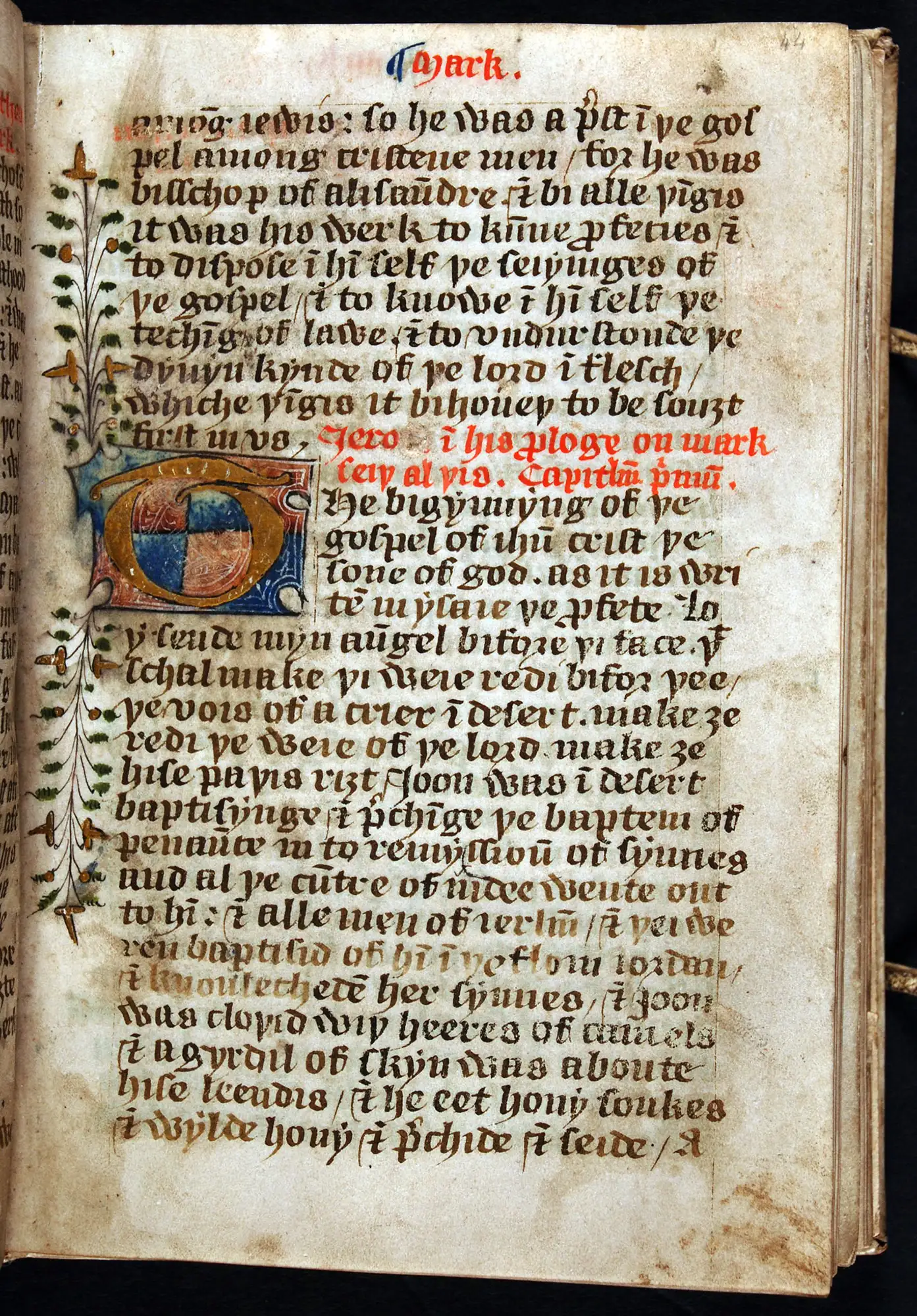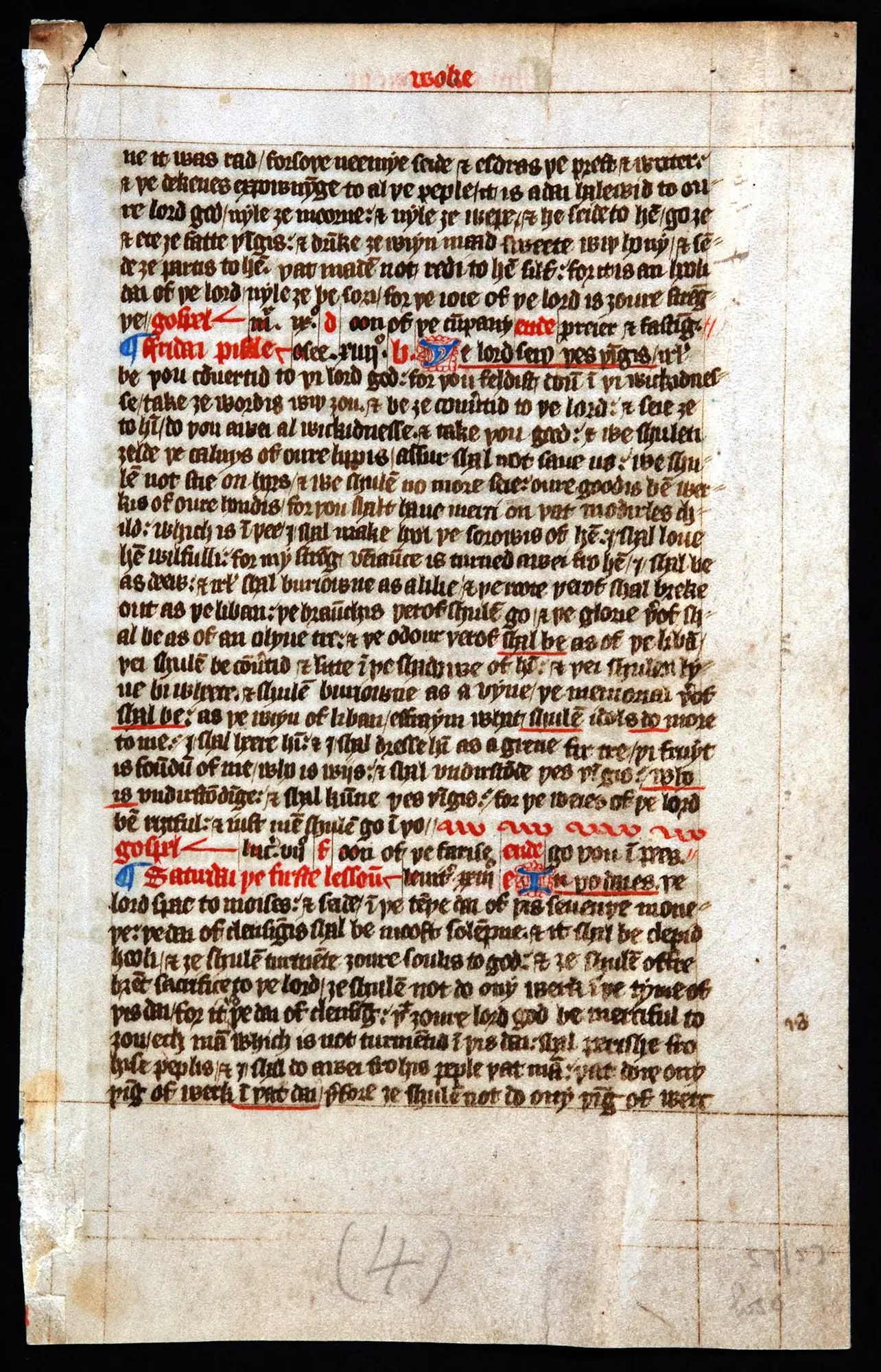
Gospels, in Middle English. England, ca. 1440. Reed MS6.
The Wycliffe Bible was the first major translation of the whole Bible into English from the Latin Vulgate. It is named after the principal figure behind the translation, English theologian John Wycliffe (d. 1384). Eight years after his death, Wycliffe’s disciple John Purvey (ca 1354-1414) completed a revision of the text in a more natural and idiomatic English compared to the literal word-for-word translation of his teacher. Both versions were considered heretical in the Middle Ages. Despite the efforts of the established Church to destroy all copies, approximately 230 manuscripts of portions of the Wycliffite scriptures have survived.
The text of the Reed copy is that of the Purvey version. It was acquired on Reed’s behalf at a Sotheby’s auction in 1956. Wycliffite Bibles are difficult to localise, but many seem to have been made in the Midlands. The manuscript is open at the beginning of the Gospel according to Mark.
